How to transfer images from the iPhone to a Windows PC
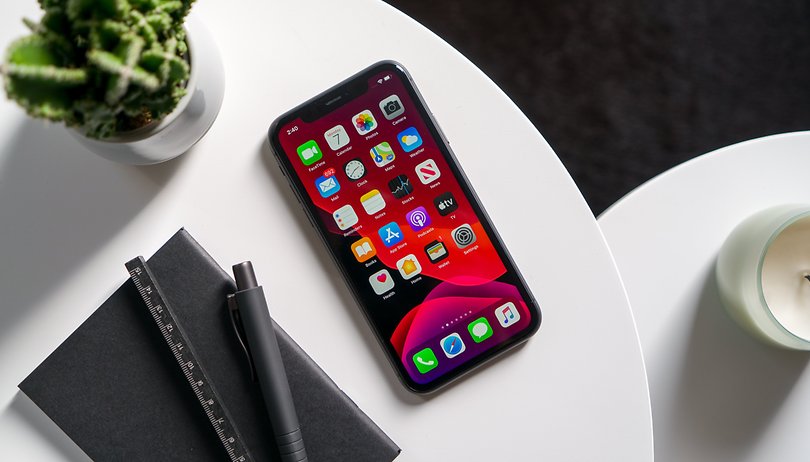

Read in other languages:
In the past, transferring photos from an iPhone to a Windows-based PC proved to be a real pain. These days, whoever wants to transfer photos from the iPhone to the PC has several options. It is no longer necessary to download iTunes for Windows, which is a welcome addition. Also, an iCloud subscription is not considered compulsory, but another possible option.
We will show you three methods of transferring photos from your iPhone to the Windows PC in this article.
Table of contents
- Transfer iPhone photos to your PC using Windows Explorer
- Transfer photos to your Windows PC via iCloud
- View and download iPhone photos via app in the browser
- Bonus: Install iTunes on Windows to transfer photos from PC to iPhone
How do I transfer photos from the iPhone to the PC?
If you want to save your iPhone photos or simply browse through the photo albums on a larger screen, you can transfer pictures from your iPhone to your Windows-powered PC. In the past, this was done most easily with iTunes for Windows. While Apple's media center is discontinued for Mac since the end of 2019, Windows users are still able to use iTunes to synchronise their content.
1. Transfer iPhone photos to PC using Windows Explorer
Any iPhone can be connected to a Windows-based PC like a USB device. From there, the photo files can be easily displayed and downloaded. This is how it works:
Step 1:
Connect your iPhone to the PC via a USB cable, where the iPhone will then display the message "Trust this computer?" Go ahead and confirm this message followed by performing a two-factor authentication if necessary. The iPhone now appears like a USB flash drive in Windows Explorer:
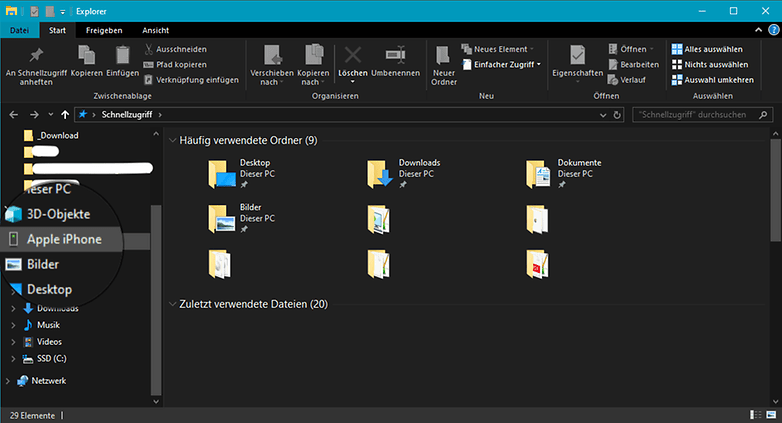
Step 2:
To transfer the images from the iPhone to the PC via Windows Explorer, you can either directly select the drop-down menu (in the left bar) or (double) click on the iPhone in Windows Explorer in order to open the file structure in main window:
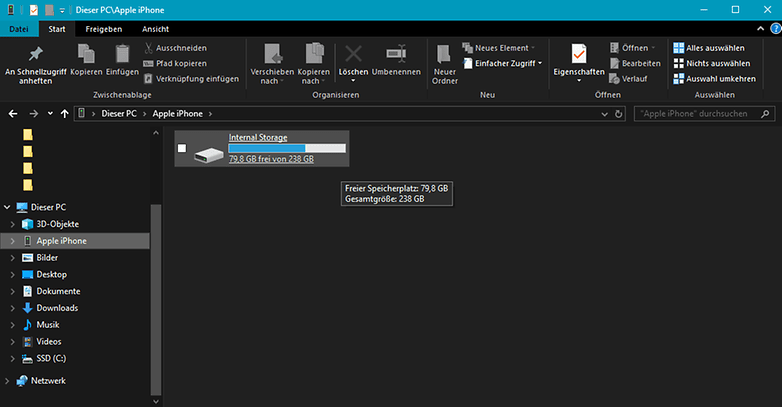
Step 3:
Another click will reveal the DCIM folder on the iPhone. This folder contains photos taken with the device or, for example, pictures backed up from WhatsApp:
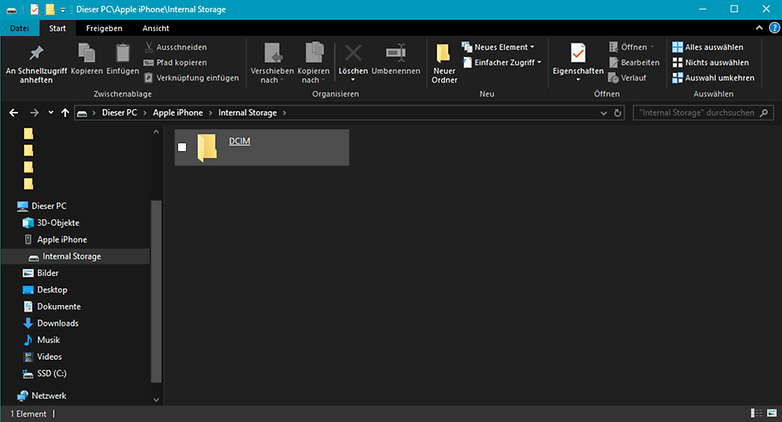
Step 4:
As you can see in the example below, there are now more folders to deal with. Depending on how many folders have been created on the iPhone, all of the available images are already sorted. From here, you are able to select whole folders or single photos and either copy and paste them to your computer or right-click and select "Copy to PC".
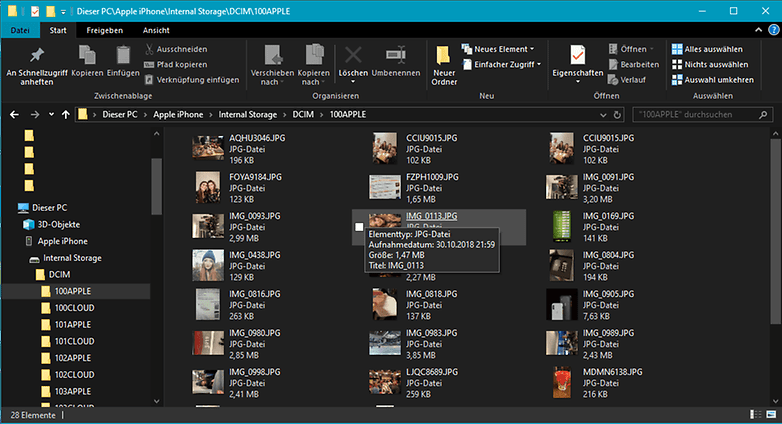
2. Transfer photos to your Windows PC via iCloud
If you backed up your photos on the iPhone to iCloud, you can easily access them via your browser.
Step 1:
At www.icloud.com every user of Apple iCloud can login with his/her Apple ID and access their respective files. Open the iCloud website and enter your Apple ID and password:
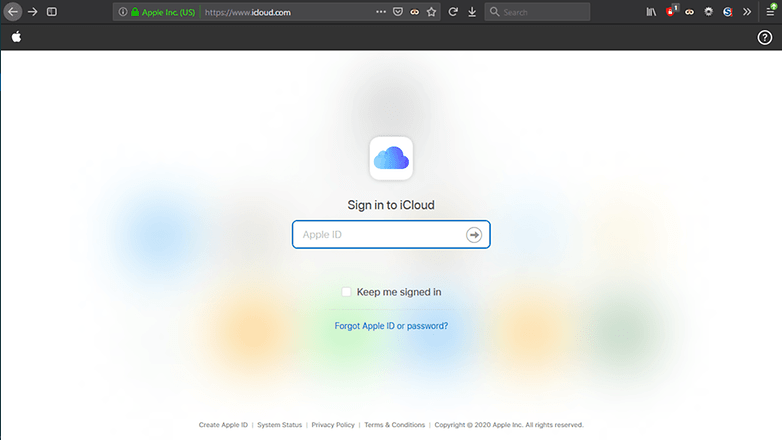
Step 2:
If you have two-factor authentication enabled, you need to use another Apple device to generate the required code at this point. After that, familiar Apple icons will appear in the browser. The photos are located in the folder with the familiar icon:
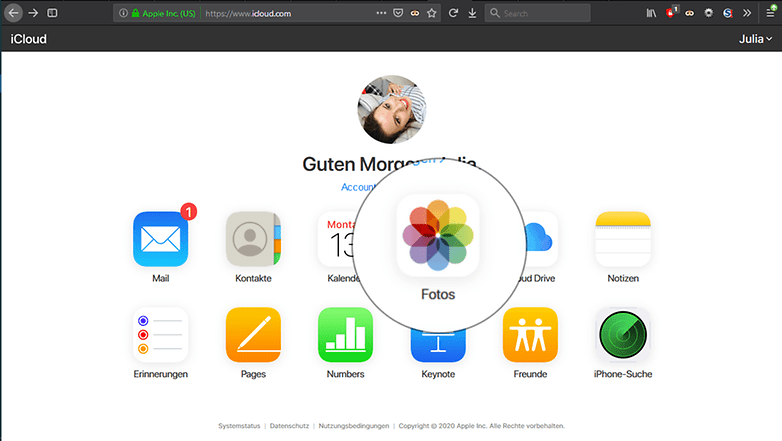
Step 3:
By clicking on the photo app in the browser, the images can be transferred from the iPhone to the PC. In addition, recently deleted items and favourites can also be displayed. Photo folders can also be quickly found and downloaded from the drop-down menu on the left.
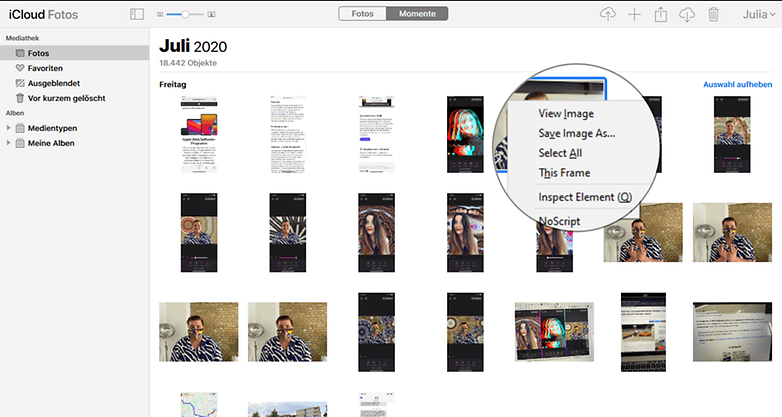
3. View and download iPhone photos via an app in your browser
Did you know that there is an app in the Apple App Store that allows you to access your photos simply by accessing your browser and typing in the server address? The free app known as "WIFIAlbumFree" makes it possible. It works like this:
Step 1:
Download the free app WIFIAlbumFree from the Apple App Store. Ensure that the iPhone and PC are connected to the same WiFi network. Now open the iPhone app and your smartphone becomes a web server:
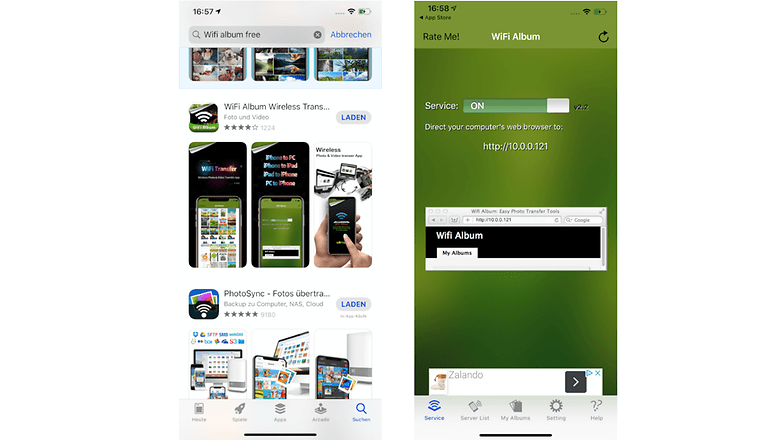
Open a browser of your choice, for example Firefox or Chrome, and enter the IP address in the URL field as shown. Now all photos and folders on your iPhone will be displayed in the browser and you can browse through the folders and download the images individually or collectively.

Bonus: Install iTunes on Windows to transfer photos from a PC to iPhone
As mentioned at the beginning, users of a Windows computer will still be able to use the good old iTunes to synchronise photos to the PC in 2020. Mac users, on the other hand, will have to perform all file management in their Finder. This is also where the iPhone backup is created. Music and streaming content can be found in new, separate apps. If you want to use iTunes on Windows, you can only synchronise your photos between an iPhone and the PC, but not access specific photo folders for export elsewhere.
Sync photos on iPhone and PC – that's how it works:
Step 1:
To transfer photos from PC to iPhone and sync the files, you must first download Apple's application. We link directly to Apple's download servers here:
How do I find out if I'm using the 32- or 64-bit version of Windows?
It's easy. Usually, systems nowadays only use 64-bit architecture. In order to find out which version of Windows is installed on your computer, follow these steps:
- Click on Start (Windows icon)
- Enter "System" in the search field
- Click on "System Information"
- Click on "System Summary"
- Under "System Type" you will be able to see whether it is 64-bit or 32-bit
Step two:
After downloading iTunes, begin the installation process. After that, you can log in using your Apple ID. Connect the iPhone to the PC via a USB cable. The iPhone will then appear as a device in the column on the left. Under "Photos" there is a checkmark that provides an option to "Sync photos". Here, you are able to select which photos should be synchronised between PC and iPhone.
In the next few days, I plan to write down the most common iPhone problems and their solutions for you. This means I will familiarise myself with the problems that tend to pop up under everyday use. Do you have any problems or questions for which I could compile and create a guide? Let me know in the comments or write me a message.







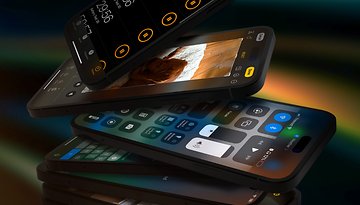
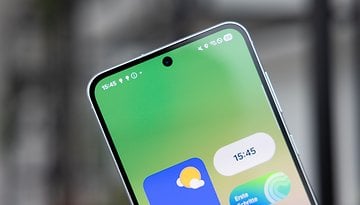
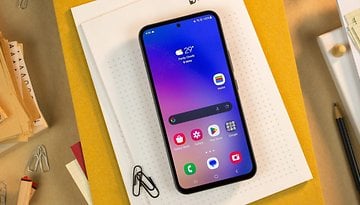




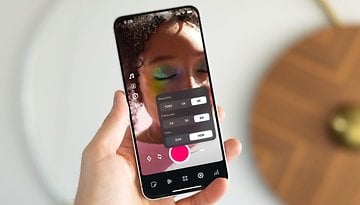





That this even merits an article says something scary about iOS, or apple users or both.